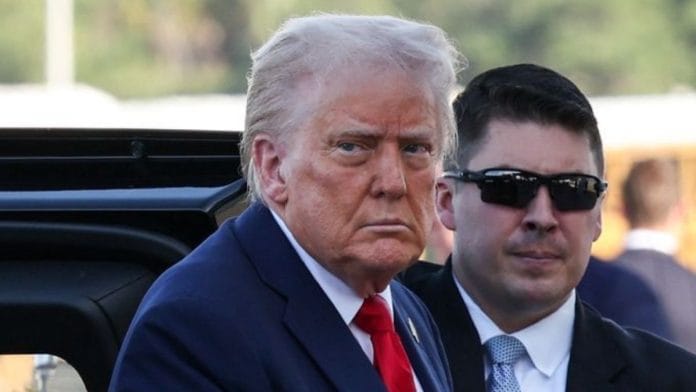Not too long ago, a prominent multinational business was weighing its options about continuing in India amid “policy uncertainties” in the country. The company stayed on, perhaps having found a way to navigate the complex regulatory contours. It’s not a one-off case. We have heard MNCs routinely call out India’s complex and uncertain policy terrain that blocks ease of doing business. Will anything change in India against the backdrop of the Donald Trump administration keeping the whole world on tenterhooks over tariffs — a step or a misstep that has tanked stock markets globally and forced governments as well as businesses to devote hundreds of hours of their productive time to dealing with the unknown onslaught?
To begin with, the power corridors in New Delhi are witnessing a shift. Bureaucrats are in a mood to push back against any MNC mentioning policy uncertainty in India, for instance. Sensing the mood, foreign companies, especially the American ones, look more restrained as they watch the scene.
Even so, while all eyes are on the reciprocal tariff announcements to be made at the White House’s Rose Garden early Thursday morning, (April 3) India time, the indirect impact of the negotiations leading up to the finale could turn out to be significant, especially in the digital services space. It could be Advantage MNCs in many cases — with or without policy uncertainty.
Take, for example, the much-awaited e-commerce policy. The proposed policy, aimed at regulating the digital commerce landscape, would impose further restrictions for foreign players such as Amazon and Flipkart (owned by Walmart) in terms of data storage, processing, consumer protection, and much more. Few would think there’s a chance of such an e-commerce policy surfacing anytime soon, even though the domestic retailers, through the Confederation of All India Traders (CAIT), may continue to protest against “predatory pricing” of the foreign majors.
Quick commerce companies, with funding from marquee global investors, including American investors such as Tiger Global, Accel and Y Combinator, have also been under the scrutiny of various authorities to ensure neighbourhood mom-and-pop stores or kiranas are not hurt. Could that slow down? Incidentally, Amazon and Flipkart have also joined the quick commerce bandwagon.
In e-commerce again, can the buzz about allowing an inventory-owned business model (B2C) come true, giving MNCs a level-playing field with domestic firms? The jury’s out on that. Right now, e-commerce firms with substantial foreign direct investment (FDI) can only operate marketplace (B2B) model in India, while there’s no such restriction on Indian firms. Globally, there is no such policy differentiation between inventory-led and marketplace formats — everything depends on how a company chooses to do business. Amazon, for example, has a combination of marketplace and inventory-led business in the US.
Allowing FDI in brick-and-mortar retail, permitted on paper but not in practice, may not be an idea under discussion at this point, as the focus is more on digital services. But who knows?
Moreover, in the tech sphere, there’s a clamour for relaxation in takedown requests for content on social media. The latest report of the United States Trade Representatives (USTR), released on April 1, raised the issue of frequent internet shutdowns and the high number of takedown requests in India. The USTR has called such requests politically motivated. Is India listening?
The 30 per cent market share cap on Unified Payments Interface (UPI) players offering real-time payment services has also been on the negotiation table. Calling the National Payments Corporation of India protectionist, the USTR report has said Indian policies concerning electronic payments services favour domestic suppliers over foreign ones.
Among other things, the government has indicated that the restriction on laptop imports, proposed in 2023 and deferred four times since then, may not be implemented at all now if the norms connected with the production-linked incentive (PLI) scheme are followed.
However, on data localisation, the government may stand its ground. For instance, the Digital Personal Data Protection (DPDP) Rules states that companies that handle the data of Indian citizens must refrain from sharing it with foreign government agencies, even if such data is stored within the geographical limits of those government’s jurisdictions.
Coming back to policy uncertainty, since Mr Trump kept everyone guessing for months on whether they would get the harshest treatment or the kindest in terms of tariff, governments (including India) have visualised multiple possible scenarios, while planning their future strategies on so many fronts. With constant flip-flopping from White House briefings and Truth Social posts, MNCs may like to keep India’s “policy uncertainty” out of the narrative. At least for some time.
Nivedita Mookerji @nivmook is the Executive Editor of Business Standard. Views are personal.






